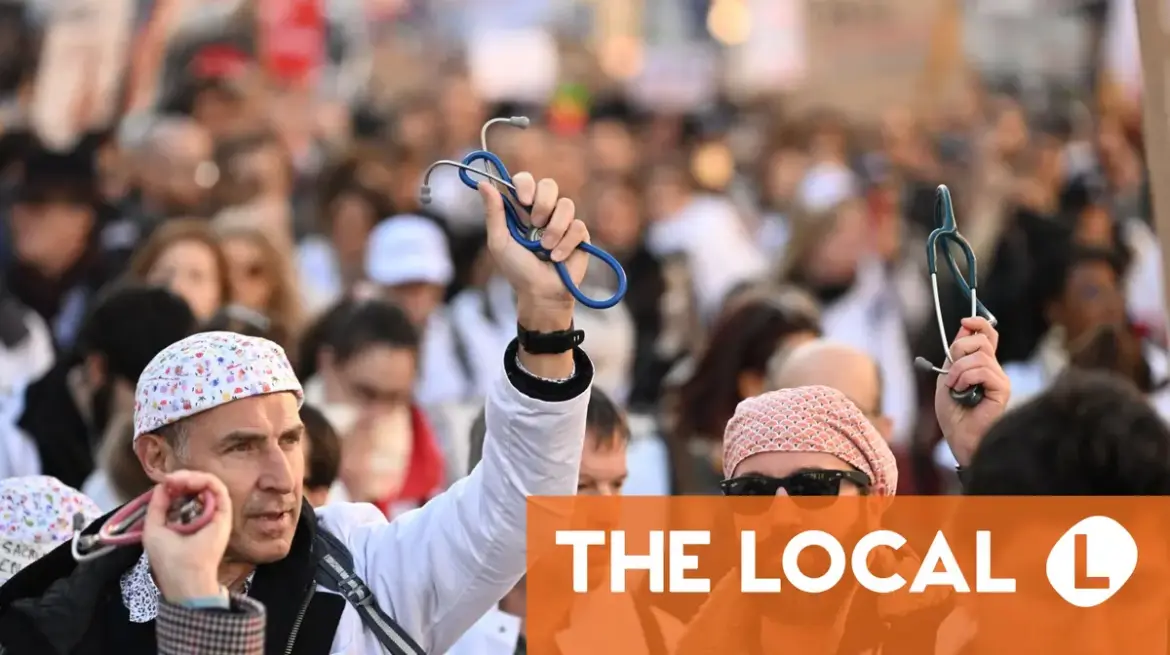Unions representing French doctors have called for ‘unprecedented’ strike action starting on January 5th, in opposition to the draft 2026 social security bill.
Seven doctors’ unions issued a unified call for strike action on Wednesday, urging doctors to “prepare for an unprecedented strike starting on Monday, January 5th.”
The call for strikes specifically affects médecins libéraux, meaning self-employed doctors, such as GPs and specialists with their own practices, as well as medical students and interns (doctors in training).
Other collectives and unions have also individually called for other protests, such as strikes in south-eastern France on Wednesday, December 3rd and a “large-scale, national protest” on Wednesday, January 7th in Paris.
But the main call for strike action is due to begin in January, with doctors already being urged to start postponing all scheduled appointments from January 5th onward.
It remains to be seen whether the strike action will go forward, as the social security bill has not yet passed parliament and could still fail to go through.
According to French daily Le Monde, one of the unions, Le Bloc, has called on physicians to relocate to Brussels during the strike period to avoid being requisitioned by the authorities.
Why do doctors’ unions oppose the 2026 draft social security bill?
The unions are calling for strike action in response to the 2026 social security bill, arguing that it “spells the end for la médecine libérale (private practices/ self-owned clinics) in France”.
They specifically criticised Article 24 of the bill, which they argue abolishes collective bargaining by giving the national healthcare system (Assurance Maladie) the power to unilaterally review rates in certain ‘profitable’ sectors, such as radiology and nephrology.
This topic came to the forefront earlier in November, when radiologists walked out after the national health insurance system published a new fee schedule for radiology and medical imaging.
Unions have also denounced Article 26 of the bill, which would introduce a surcharge on top of the additional fees that sector 2 and sector 3 doctors charge.
As a reminder, sector 2 physicians charge the official health insurance rates, but they can also add extra fees on top. Technically, they are only meant to charge more for their services “with tact and moderation”. This extra cost is known as dépassement honoraires.
The third category of doctor is non-conventionné, also called ‘sector 3’. These medical professionals have not signed the mutual agreement to charge state-regulated pricing, so they can decide their own prices. As such, non-conventionné (sometimes called ‘sector 3’) doctors tend to charge higher rates.
READ MORE: ‘Conventionné’: Why you should find out what ‘sector’ your French doctor is
What about hospitals?
In France, doctors who work in hospitals are not permitted to walk off the job, so their ‘strikes’ usually take symbolic form, such as wearing a badge saying ‘on strike’ while staging protests outside the hospital.


Dining and Cooking